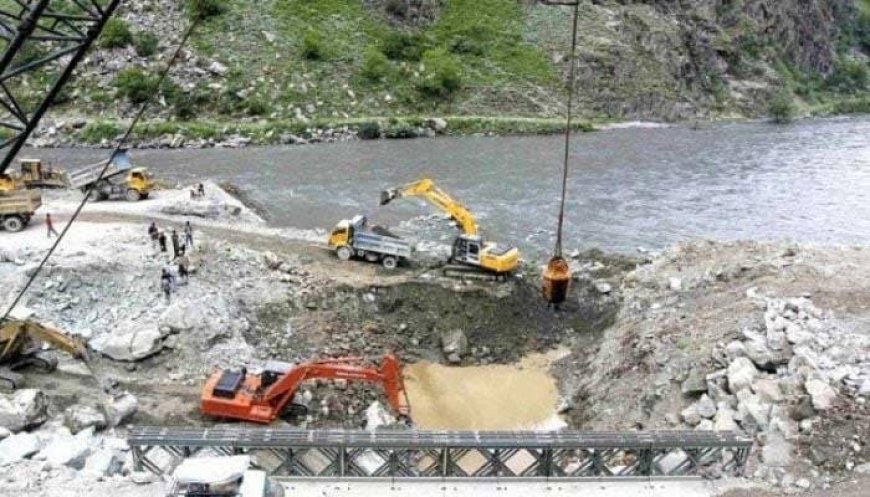Kishenganga, Ratle projects: Neutral expert to hear Pakistan-India water dispute today

1. Two-day proceedings will address diplomatic tensions surrounding both projects
ISLAMABAD: Pakistan and India will confront each other on September 10-11 at the neutral expert forum in The Hague over the contentious designs of the 330-MW Kishenganga and 850-MW Ratle hydropower projects.
The two-day hearings aim to address diplomatic tensions related to these projects, particularly focusing on the impact of the Kishenganga Hydroelectricity Project on Pakistan's downstream water availability.
Pakistan’s delegation is led by Syed Ali Murtaza, Federal Secretary of the Ministry of Water Resources, and includes Syed Muhammad Mehr Ali Shah, Pakistan Commissioner for Indus Waters, along with senior officials from the Attorney General Office, Law Division, National Engineering Services Pakistan (NESPAK), and an international legal team hired by the Pakistani government.
The Permanent Court of Arbitration (PCA) and the neutral expert are both reviewing the cases related to the Kishenganga and Ratle hydropower projects, which affect Pakistan’s rivers, Jhelum and Chenab. While Pakistan advocates for the PCA to adjudicate, India prefers the neutral expert’s decision. The World Bank had established both forums to address the dispute. Pakistan is participating in both, whereas India continues to boycott the PCA.
In July 2023, the PCA dismissed India's objections, affirming its jurisdiction over the case and reserving some issues for further consideration. Pakistan has since requested the PCA to interpret and apply the Indus Waters Treaty to specific design elements of India's hydroelectric projects. The neutral expert had previously met in February 2023 to finalize procedural rules for these legal challenges.
Pakistan has raised three primary objections to the Kishenganga project's design: the project’s pondage of 7.5 million cubic meters is deemed excessive, with Pakistan requesting a reduction to one million cubic meters; an increase in intake by up to 1-4 meters; and raising spillways to nine meters.
For the Ratle Hydropower project, Pakistan has four main objections: maintaining a one-meter freeboard (India proposes two meters), reducing pondage from 24 million to eight million cubic meters, raising the intake by up to 8.8 meters, and increasing spillways by up to 20 meters. Pakistan contends that the current design will significantly reduce Chenab River flow at Head Marala, adversely affecting irrigation in central Punjab.
















































